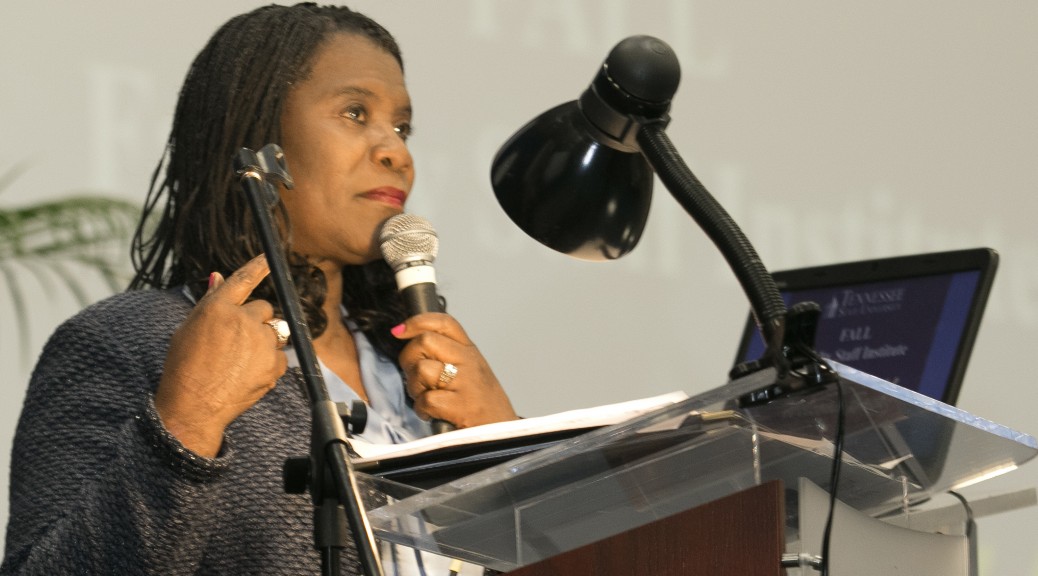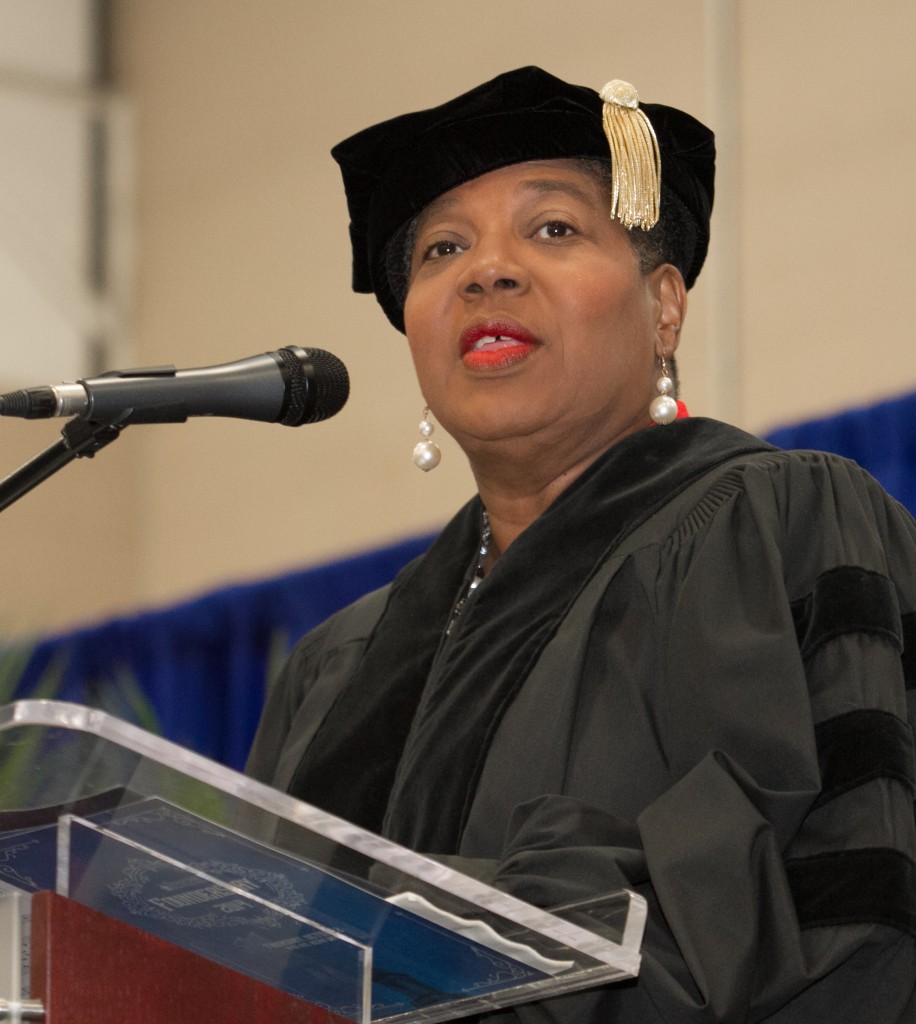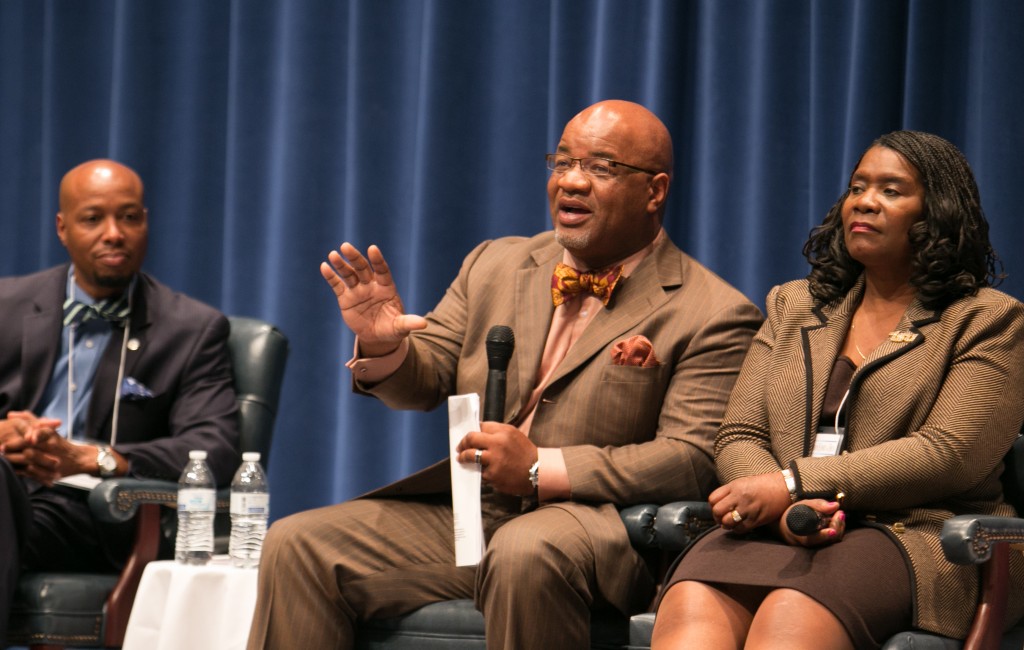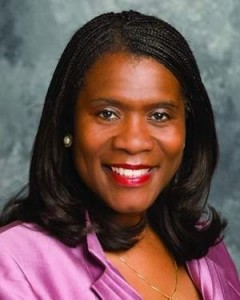NASHVILLE, Tenn. (TSU News Service) – Tennessee State University President Glenda Glover gave an upbeat assessment of the state of the university Monday announcing the addition of two new colleges for the coming academic year, but said much work needs to be done in the areas of retention and graduation.
At 60 percent, the 2013-2014 first-time freshman retention rate showed a 1 percent increase over the previous academic year. The 2015 graduation rates are still pending, but she said a 1 percent increase in graduation in 2014 is not where the university wants to be.
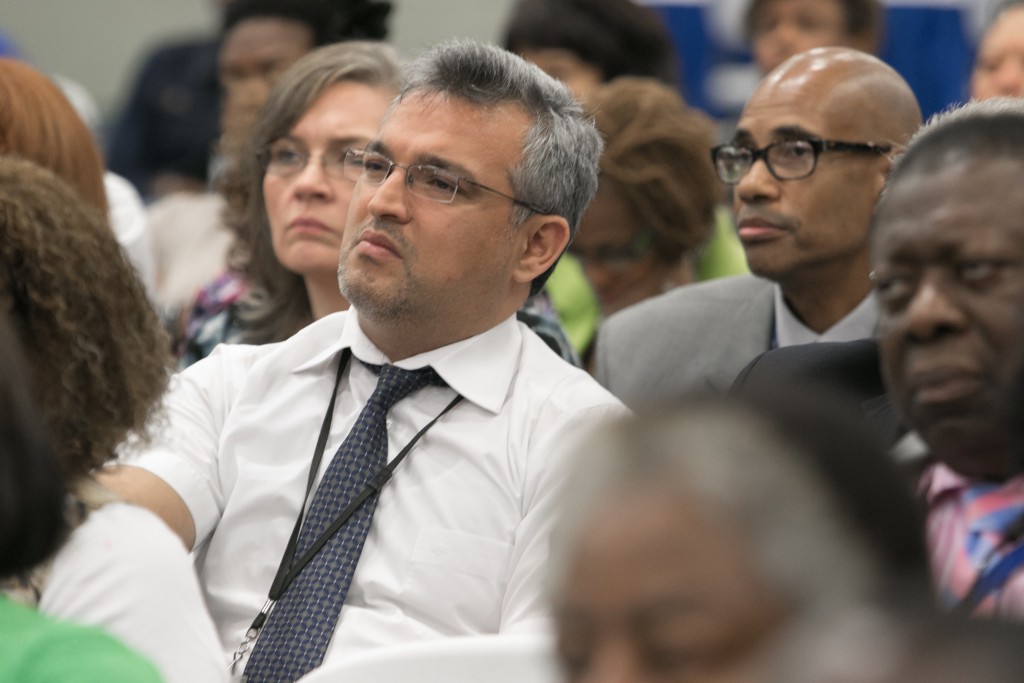
“We have to do better than that,” Glover said as she announced several new initiatives to improve retention and college completion. “We must do everything possible to help students do better and make them want to stay and graduate. This is fundamental to why we are here not to mention that graduation and retention are key to our funding.”
President Glover announced the addition of the College of Life and Physical Sciences, acting upon recommendations from faculty and students with the approval of the Tennessee Board of Regents. The new college brings all of the STEM degree courses under one umbrella. The new college will include biology, chemistry, mathematics, and physics, the only non-degree program.

Dr. Lonnie Sharpe, a long-time TSU professor and Massie Chair of Excellence, has been named interim dean of the College of Life and Physical Sciences. Sharpe is also the executive director of the Tennessee Louis Stokes Alliance for Minority Participation, which recently won a $987,000 National Science Foundation award to increase the number of minority students who earn Ph.D., in STEM education.
Glover also announced the elevation of the TSU Honors Program to a college level program. Like all the other academic units, the Honors College will exist as an equal collegiate unit within the university structure, with a dean reporting to the vice president for academic affairs.
In another move, the president announced the change in the name of the College of Public Service and Urban Affairs to the College of Public Service, while Early Childhood Education is moved from the College of Agriculture to the College of Education.
“The recommendations for these changes have been reviewed by us and found to be appropriate and sound academic steps, and with the approval of the Tennessee Board of Regents, we are implementing them,” Glover said.
On other institutional achievements, the president touted recent national accolades TSU has received, such as the no. 1 ranking among the Top 10 HBCUs that Produce Teachers; no. 1 among Most Affordable Colleges Online in Tennessee; and no. 34 of the 100 Most Affordable Universities. She also spoke about the university’s expanded marketing campaign through billboards, social and print media promoting its programs, offerings, community college and distance learning initiatives.
Glover announced upgrades in dining with the adding of Starbucks on the main campus and POD and coffee shop on the Avon Williams campus, which received a rousing chant of approval. A 2-percent across-the-board salary increase retroactive to July was also announced.
With nearly 1,400 new freshmen expected, Glover called on faculty and staff to “join hands” in making sure the new students receive all the support necessary to make their fall freshman move-in Tuesday successful.
“Let all of us show up and give our new freshmen and their parents a rousing TSU welcome during the freshman move-in tomorrow,” Glover said.
Department of Media Relations
Tennessee State University
3500 John Merritt Boulevard
Nashville, Tennessee 37209
615.963.5331
About Tennessee State University
With more than 9,000 students, Tennessee State University is Nashville’s only public university, and is a comprehensive, urban, co-educational, land-grant university offering 38 undergraduate, 22 graduate and seven doctoral programs. TSU has earned a top 20 ranking for Historically Black Colleges and Universities according to U.S. News and World Report, and rated as one of the top universities in the country by Washington Monthly for social mobility, research and community service. Founded in 1912, Tennessee State University celebrated 100 years in Nashville during 2012. Visit the University online at tnstate.edu.
